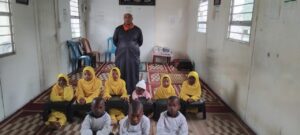Durban’s Zanzibari people are still fighting for their sense of belonging, 148 years later, writes Nabeelah Shaikh
From the Spice Islands, to South African shores, the Zanzibari slaves also known as the Makua people, arrived in Durban between 1873 and 1880. Babies, expectant mothers and children as young as three-years-old were among the 502 recorded Zanzibaris who made, and survived, that horrid journey. They were recognised at the time, as indentured, like the men and women who arrived before them from India.
Wally Shaik Anwarudeen, 73, is among one of the eldest remaining descendants of the Zanzibari slaves. They were actually freed northern Mozambican slaves, who were brought into the country by the British, after they intercepted illegal slave ships en route to Zanzibar.
At his home in Queensburgh, Durban, Anwarudeen, browses through piles of documents, pictures and records, which bring back memories of a dark past.
Anwarudeen and another member of the community, Alpha Franks, 63, have made it their life’s purpose to ensure their sense of belonging is restored.
“We want to leave a legacy behind for our children, and grandchildren. We came to Durban, under horrible circumstances and back then what was rightfully ours, was taken from us. Our land and our homes, which were part of our identity” said Anwarudeen.
After arriving in Durban, they settled on the Bluff, on land called Kings Rest.
They were later removed under the Group Areas Act. The Zanzibaris were then forced to settle in Chatsworth, an area that was earmarked for the Indian community. There, they built a life for themselves in Bayview. They were an integral part of the development of the area.
“Many of the properties you see there, were built by the Zanzibaris. When we arrived in the area, it was completely under developed and with time, the community made great strides. We built our own Musjid and lived harmoniously,” said Anwarudeen.
Now, South Africa’s Zanzibari community has significantly grown to about 15 – 20 000 members, scattered across the country. The bulk of them still remain in Chatsworth, while others have moved to other areas such as Newlands, Marianhill and Phoenix.
But their forceful removal from Kings Rest, still haunts them, even today.
Victory
While life has moved on for many of the descendants, Anwarudeen and Franks are among those who say they won’t rest until they achieve a full victory and get justice for their community.
They are both members of the Zanzibari Development Trust. The trust was formed between 2003 – 2004, to serve as a voice for the community. And to help fight for restoration.
In 1916, the Juma Masjid Trust took control of land, property and the total maintenance of the Zanzibari settlement at Kings Rest.
“Despite this, the Zanzibari community is still being side-lined even today and we don’t get the support that we need. We have plans for the community, plans for the land to develop homes, and commercial properties. Our only goal is to continue fighting until we achieve this. But the lack of assistance, has made this process difficult,” said Anwarudeen.
The KwaZulu-Natal Land Claims Commission ruled in 2004 that the Zanzibaris were the rightful owners of the Kings Rest land. But Anwarudeen says that the handover process has been stalled.
“When the the commission handed over title deeds to 5.2-hectares, the community stood there filled with such joy and emotion, with tears in their eyes, thinking it was a victory. But actually, only half the battle was won,” said Anwarudeen.
All these years later, and the Zanzibaris haven’t been able to return to Kings Rest due to red tape, bureaucracy and objection from the surrounding community.
The delay has left many members of the community disheartened. But they won’y give up.
“We’ve realised that nobody will fight for us. We have to continue to fight on our own,” said Anwarudeen.
And fourth generation descendants like Anwarudeen and Franks say only restitution will help them close a dreadful chapter in their history.
As one of South Africa’s smallest minority groups, the Zanzibaris remain a close knit community. They have managed to uphold their East African culture, and their strong Islamic values while being fully integrated into a democratic South Africa.
“And this is the legacy we will leave behind for our children through Kings Rest. They must know and understand their history. All that remains there now is a masjid and a cemetery. The only time we visit is when we go to our ancestral graves. We don’t want to return there as dead bodies, we want to see our dream being realised now,” said Anwarudeen.


